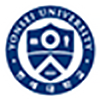Yonsei University (Korean: 연세대학교, English: Yonsei University) is located in Seoul, South Korea. It is a comprehensive research university established in the spirit of Christianity. It is one of the three well-known universities recognized in South Korea (S.K.Y.) along with Seoul University and Korea University. The competition for admission is extremely fierce. It is also a member of the Association of Pacific Rim Universities, the Association of East Asian Research Universities, and the Asia Campus.
Yonsei University was founded on April 10, 1885. Its predecessor was Yeonhee University and Sepaklans Medical University. "Yonsei" is a combination of one word from each of the two schools. Gwanghyewon (Gwanghyewon), the first modern hospital in South Korea at the time, was renamed "Chejungwon" two weeks after its opening. It was established by missionary Horace N. Allen. Before the opening of the school, another missionary, Horace G. Underwood, helped the medical work of Jejongwon after visiting Korea, and carried out education and missionary work.
The medical and educational work of these two missionaries at Jejongwon became the foundation of today's Yonsei University. After that, Korean medical activities began to be institutionalized, and the medical department developed it into Severance Medical College, and later changed it to Severance Medical University. In September 1904, Mr. Severance (L.H. Severance) funded the reconstruction of Severance Medical College. In June 1942, under the pressure of Japanese colonial aggression, Severance Medical University was forced to change its name to "Asahi Medical School", and in April 1944, Yeonhee University was forced to change its name to "Gyeongseong College of Administration". Yeonhee University and Severance University have always supported Korea's democratization and modernization during the crisis of Japanese colonial aggression, and are important forces for national independence and civilization development. In 1957, the two schools officially merged to form Yonsei University. In the same year, Dr. Baek Nak-jun was appointed as the president of Yonsei University, and Dr. Hyun-bae Choi and Dr. Myung-sun Kim were appointed as vice presidents. In 1962, the dormitory of the School of Nursing of Yonsei University Medical School and the new building of Severance Hospital were completed. The Medical University and Severance left the front of Seoul Station and moved to the Sinchon campus. In 1978, the Wonju branch of the Medical University was established. After that, the Wonju campus gradually expanded its subject areas, constructed a university framework, and developed into Wonju College. In 1984, it moved to Maeji-ri and became one of the main campuses in Gangwon-do.
In March 2000, the Seoul Sinchon campus established 6 disciplines including humanities, social sciences, natural sciences, engineering, medicine (dentistry), art and sports. The International Graduate School was also changed to a specialized graduate school, and 2 specialized graduate schools (Information Graduate School and Film Graduate School) were added. In 2010, Yonsei University opened an international campus in Songdo, Incheon, taking an important step towards becoming a world-class education and research powerhouse. Yonsei University has three campuses, and as of spring 2023, it has 27,444 undergraduate students and 11,958 graduate students, including 4,120 international students; a total of 4,983 faculty members, including 298 foreign faculty members. The school includes 18 colleges, including the College of Liberal Arts, the College of Educational Sciences, the College of Divinity, the College of Business, the College of Management, the College of Social Sciences, the College of Life Sciences, and 1 independent graduate school, covering a wide range of majors. Undergraduate colleges include the College of Arts, College of Educational Sciences, College of Theology, College of Business and Economics, College of Management, College of Social Sciences, College of Life Sciences, College of Law, College of Science, College of Medicine, College of Dentistry, College of Nursing, College of Engineering, College of Music, College of Life Sciences, College of Global Talent, and Underwood International College at the Sinchon campus; the College of Humanities and Arts, College of Political Science and Economics, College of Science and Technology, College of Health Sciences, East Asia International College/International Elite College, and Wonju Medical College at the Wonju campus; the College of Engineering and College of Pharmacy at the Songdo campus. Graduate colleges are also located at the Sinchon campus and the Wonju campus. Yonsei University ranks relatively high internationally, ranking 56th in the 2025 QS World University Rankings, 76th in the 2024 Times Higher Education World University Rankings, and 205th in the 2024 US News World University Rankings.
Some of its advantageous majors have a high reputation in Korea and even in the world. For example, the business major is the first major in Korean universities to teach economics, aiming to cultivate specialized economic talents with economic analysis and business capabilities; electronic engineering, computer engineering, chemical engineering and other engineering majors are also popular; Korean language and literature, anthropology, history, and media studies in liberal arts majors are also chosen by many students. Yonsei University has a beautiful campus environment and complete facilities. There is a library with an area of more than 54,000 square meters on campus, with a rich collection of books, as well as museums, gymnasiums, science and technology museums and specialty restaurants. The school has established high-tech IT infrastructure such as interactive multimedia teaching systems and batch control management systems, as well as wireless network classrooms, providing students with a good learning environment. In addition, as a well-known university in Korea, Yonsei University has been selected by the Ministry of Education as a "university-industry cooperation complex" project and has received huge government funding. Based on the Songdo International Campus in Incheon, a bio-centric city, the "Bio-Health Industry-Academic Cooperation Park" was built, which plays an important role in the medical and biological joint research in the fields of new drug development, clinical and health care, bio-polymerization, and medical devices in China.
Its Y-IBS Academy of Sciences has also attracted worldwide attention for its interdisciplinary joint research activities including nanomedicine. This century-old prestigious university has successfully cultivated many well-known figures in academia, politics, business, and cultural entertainment. In the academic world, there are current Yonsei University President Seo Seung-hwan and MIT Mechanical Engineering Professor Kim Sang-bae; in the political world, there are former Prime Minister Han Seung-soo and former Bank of Korea President Lee Ju-yeol; in the business world, there are Daewoo Group founder Kim Woo-joong, LG Group CEO Gu Bon-moo, AmorePacific Group Chairman Seo Kyung-bae, Samsung Electronics CEO Choi Do-seok, Samsung Heavy Industries CEO Park Dae-young and Shilla Hotel President Lee Boo-jin (Samsung Group Princess); in the cultural and artistic world, there are Parasite director Bong Joon-ho, former Chosun Ilbo President Fang Sang-hoon, poet Yoon Dong-ju, famous actors Ahn Jae-wook and Han Jae-seok, etc.
The admission requirements of Yonsei University are as follows: Undergraduate applicants: need to pass the Korean National Korean Proficiency Test (TOPIK) Level 4 or above; high school graduation grades are ranked in the top 10% or above (or GPA3.0 or above). Graduate applicants: need to pass TOPIK Level 5 or above; undergraduate degree grades are ranked in the top 10% or above (or GPA3.0 or above). In addition, the school will conduct a comprehensive assessment of the applicant's comprehensive conditions, including personal qualities, extracurricular activities, internship experience, etc. If you want to know more detailed information about Yonsei University, it is recommended to visit the school's official website to obtain the latest and more accurate information. At the same time, the specific requirements and course settings of different majors may vary. When applying, you need to carefully check the specific requirements of the relevant majors.
-
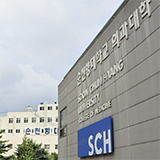
순천향대학교, Soonchunhyang University
-
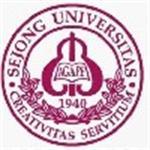
세종대학교,Sejong University
-
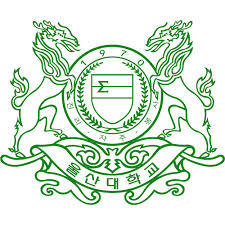
울산대학교,University of Ulsan
-

Seoul National University, SNU, 서울대학교
-
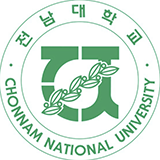
Chonnam National University, 전남대학교
-
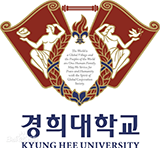
Kyung Hee University
-
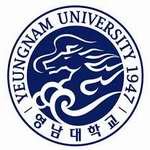
Yeungnam University, 영남대학교
-
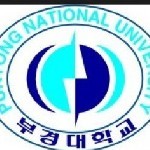
Pukyong National University, 국립부경대학교
-
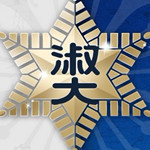
Sookmyung Women's University, 숙명여자대학교
-

Hallym University, 한림대학교
-

Mesoamerican University
-

Istmo University
-

Mariano Galvez University of Guatemala
-

Regional University of Guatemala
-

Galileo University
-

Francisco Marroquín University
-

Rafael Landívar University
-

University of the Valley of Guatemala
-

University of San Carlos of Guatemala
-

Technological Institute of Tlaxcala Plateau
-

Golfo University
-

Technological University of South Sonora
-

Technological University of Huejotzingo
-

Tizimín Institute of Technology
-

Chilpancingo Institute of Technology

